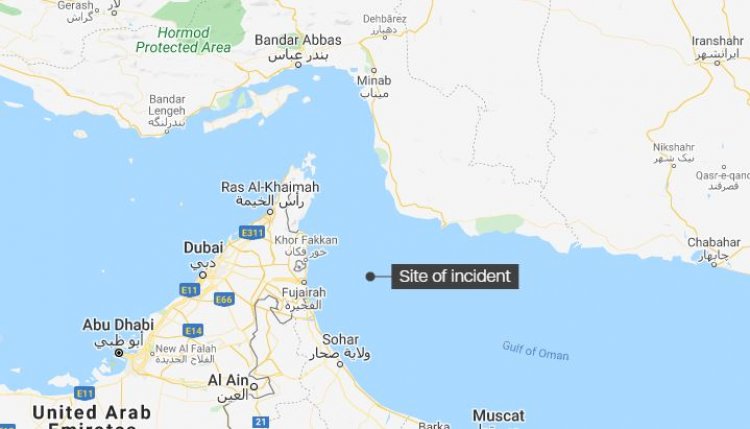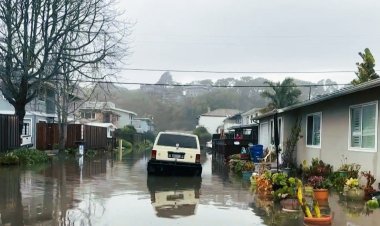The US Coast Guard defines the term "not under command" as meaning "through some exceptional circumstance" a vessel is "unable to maneuver as required" by international maritime rules.
US State Department spokesperson Ned Price said Washington is "aware of the reports of a maritime incident in the Gulf of Oman."
"We are concerned, we are looking into it, we are coordinating with partners, but at this point I just don't have anything more for you on it," Price said at the daily briefing Tuesday.
The Persian Gulf and Arabian Sea have seen a rise in attacks in recent months, including a drone attack on an Israel-linked tanker last week.
Two people, a Briton and a Romanian, were killed when the tanker Mercer Street was attacked by a drone off the coast of Oman. The United States, Israel and the United Kingdom have blamed Iran for the attack, which Tehran denies.
Iran moved quick to deny any involvement in Tuesday's alleged incident in the Persian Gulf and Sea of Oman, with Ministry of Foreign Affairs spokesman Saeed Khatibzadeh telling Iranian news agency Tasnim that the country's armed forces had not entered ships operating in that area, as reported in some western media outlets.
The spokesman described the reports as suspicious, and emphasized that Iran's basic policy is to establish stability and security in the Persian Gulf and the Sea of Oman, as well as having its naval forces assist the passing ships in the region in case they broadcast SOS messages.
The location of Tuesday's alleged incident is in the vicinity of the Strait of Hormuz, the narrow waterway into the Persian Gulf through which 30% of the world's seaborne crude oil passes each day, according to the International Crisis Group, an independent organization which monitors potential conflict flashpoints worldwide.
















